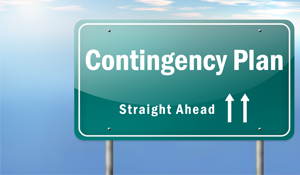“Why should we look to the past in order to prepare for the future? Because there is nowhere else...
Disasters, Major and Minor: Prepare for the Worst
We’ve seen a lot of disasters happen in the U.S. in recent years.
Nearly two weeks after the storm made landfall, residents in the Southeastern part of the U.S., mainly the Carolinas, are still facing the effects of Hurricane Florence. In the Merrimack Valley in Northern Massachusetts, residents and business owners are still trying to get back to business-as-usual following more than 80 freak natural gas-related explosions and fires. In California, residents are still contending with deadly and destructive wildfires across the state.
In the wake of these horrible events, the importance of contingency and disaster planning for business owners is clear. It’s something that needs to be on the forefront of every business owner’s mind.
Beyond naturally occurring events, businesses face other risks on a daily basis. Some of these include:
- Financial
- Operational
- Political
- Technological
- Failure to innovate
- Damage to reputation
- Strategic (competition)
- Economic climate
- Compliance (i.e. OSHA or EPA)
In the face of these risks, there are many facets of risk management that need to be addressed, including:
- Insurance
- Business continuity
- Health and safety
- Corporate governance
- Finances
Having a plan in place and being able to put it into immediate action can mean the difference between staying open or closing your doors should disaster strike. Let’s look at some of the ways that business owners can start to prepare their businesses for unforeseen disasters.
What You Need to Consider as Part of Your Disaster Preparations
It’s critical for businesses to identify and quantify the risks they have and develop ways to mitigate them. Some of the key questions you want to answer include:
- Who will be in charge should disaster strike?
- How is the company going to fulfill the promises made to its customers?
- How will you deal with and communicate with all potentially affected parties, including customers, suppliers, employees, etc.?
Once you answer these questions, you’ll want to develop written policies, procedures, and training programs that can be used by your whole team. In order to do this:
- Consider working with risk management professionals.
- Develop management redundancies.
- Back up your IT systems regularly – create backup redundancy in the cloud or off-site, especially for critical data and programs, and have a plan for getting your systems back up and running as quickly as possible.
- Establish specific communications policies and processes for employees, vendors, and customers.
- Review your insurance coverage at least annually to ensure that you’re covered in as many areas as possible.
- Ensure that all employees are trained for emergency situations, including securing property and evacuation procedures.
- Create and revisit your emergency response plan at planned intervals, and make sure it is accessible even if your internal systems go down.
Don’t Forget About Possible Minor Disasters
It’s easy to focus on (and become anxious about) the possibilities of major disasters. But it’s more likely to be a minor disaster that can be catastrophic for your business, such as a water main break that destroys your technology infrastructure, a fire that destroys all of your company’s inventory, a critical equipment failure, or an employee who embezzles money. A sharp decrease in business is always a real possibility.
You want to make sure you’re prepared. Planning is essential for your survival.
Sobering Statistics – Don’t Become One of Them
Almost 40% of small businesses never reopen their doors after a disaster, according to the Federal Emergency Management Agency (FEMA). Even more disheartening, according to AON, a provider of risk management products, 80% of companies that fail to recover from a major disaster within one month will go out of business. If you don’t want your business to become one of these statistics, it’s time to start planning.
Here are a few helpful resources from the IRS:
IRS’s Disaster Resource Guide for Individuals and Businesses https://www.irs.gov/pub/irs-pdf/p2194.pdf
Tips for Individuals Who Need to Reconstruct Records After a Disaster
https://www.irs.gov/newsroom/tips-for-individuals-who-need-to-reconstruct-records-after-a-disaster



